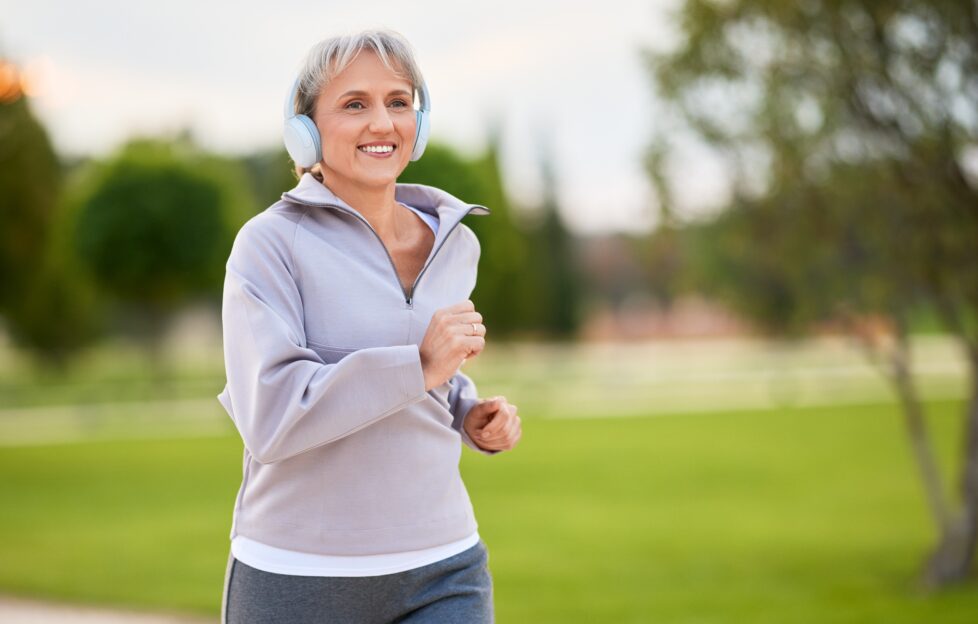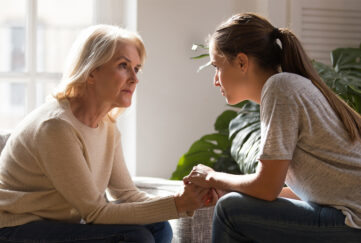Stay Healthy As You Age

As we get older, or if we spend time around older people, it’s important we keep up to date with vaccinations to protect our health and thos e around us.
As the NHS invites people over 75, with a weakened immune system or living in older adult care homes to get their COVID-19 vaccination this spring, Dr Adrian Hayter, NHS England’s National Clinical Director for Older People and a Berkshire GP, explains how vaccines work, and which ones you may be offered as you age.
He answers some of your most common questions on immunity, health and keeping up to date with your vaccines.
Can I get the COVID-19 vaccine?
This spring, everyone aged 75 years or over or living in a care home for older adults is being offered a spring COVID-19 vaccination to top up their immunity. As well as older people, everyone aged five years and over who has a weakened immune system can also get a spring vaccine until 30 June.
So, if this includes you – or a relative you care for – you can book an appointment for an NHS vaccination for free.
Can my family get the COVID-19 vaccine, too?
If you have a family member or carer who isn’t vaccinated, they could pass on viruses without knowing, even if they are healthy.
“While most people under 75 aren’t eligible for a seasonal vaccination, it’s not too late for them to get a dose if they have had just one so far, or not been vaccinated against COVID-19 at all. This will help them to protect those around them, as well as themselves,” says Dr Hayter.
Do I have a weakened immune system?
There are many different reasons that someone could have a weakened immune system, such as having:
- A blood cancer, such as leukaemia, lymphoma or myeloma
- An organ, bone marrow or stem cell transplant
- A genetic disorder affecting the immune system
- A treatment such as steroid medicine, biological therapy, chemotherapy or radiotherapy
certain medicines that increase your risk of infection, such as azathioprine, dexamethasone, prednisolone, ciclosporin or mycophenolate (depending on your dosage) - A long-term immunosuppressive treatment for conditions such as lupus, rheumatoid arthritis, inflammatory bowel disease, scleroderma and psoriasis.
There are other health conditions and treatments that may mean you have a weakened immune system not covered here so, if you’re not sure, please speak to a pharmacist, GP or your specialist for advice.
Are all your vaccinations up to date?
Adrian stresses the importance of having vaccinations when you’re invited to have them by the NHS.
“If you were aged 50 or over last autumn, you will have been offered a flu jab. It’s important to have a flu vaccine ahead of the winter every year as the viruses that cause flu change each year and immunity from previous doses fades over time.
“From the age of 65, you’re also offered a single pneumococcal vaccine (sometimes known as the pneumonia vaccination), and from 70, the shingles vaccine.
“If you’re unsure if you’ve had all of your vaccinations, you can talk to your GP practice, or your carer if you have one,” Adrian says.
“If you’re looking after older people in a care home, your local vaccination team should be in contact with the care home to organise a vaccination visit. Please get their support to plan the visit and coordinate consent for the vaccine,” he adds.
Due to the changing nature of these viruses and the fact that our immune response declines as we age, we know that it’s important to keep up with regular booster vaccines
How vaccines work to protect you
“Different vaccines help to train your body to defend you against different diseases,” Adrian explains. “So, when you come into contact with that disease, your immune system will make the antibodies and special cells that will get rid of the bugs, bacteria and viruses causing that disease.
“This helps to protect you from getting seriously ill and stops the spread of an infection, protecting others who can’t have the vaccination,” he says.
“Due to the changing nature of these viruses and the fact that our immune response declines as we age, we know that it’s important to keep up with regular booster vaccines.”
Why are older people vaccinated against specific illnesses?
“As we age, our protection may reduce more quickly than for other people. We become more susceptible to these conditions and are more likely to be very ill from them,” Adrian says.
“Getting the COVID-19 vaccination now will lower your risk of hospital admission and help you to recover sooner if you catch COVID-19 during the spring or summer.
“This is very important, especially if you live in a care home. Living closely to each other and mixing with staff, other health professionals and visitors means many viral illnesses can spread rapidly.
“Vaccination will reduce the chances of people contracting COVID-19 and then spreading it to other residents and staff,” Adrian explains.
“That’s why, to prevent the spread, the NHS is currently offering COVID-19 vaccinations to all those living in a care home for older adults.”
Will the vaccines make me ill?
“The answer’s no,” says Adrian. “The COVID-19 vaccines don’t contain a live virus, so aren’t live. There’s no risk of catching COVID-19 from the vaccine or of transmitting it to others,” he says. “The side-effects are usually mild and generally don’t last. Most commonly people get a sore arm from the injection, they feel tired, get a headache, feel achy or they feel or are sick.
“More serious side-effects such as allergic reactions are very rare and vaccination teams are well prepared to detect and deal with this kind of reaction with monitoring and medication,” he explains.
How can I book my COVID-19 vaccination?
Care home residents are offered the vaccine through visits to individual care homes. Others eligible for a seasonal dose (because they turn 75 or above by 30 June, or have a weakened immune system) or who need an earlier dose because they have only had one or none at all, can book their vaccination through the NHS website by downloading the NHS App or by calling 119 for free.
Images: Shutterstock
and the reasons why certain patients and their #Carers should also have their #flujab #FluVaccine thanks to @pat_rogan and the production team @ebpcooh for the animation @NHSEastBerksCCG @NetworkWindsor pic.twitter.com/mbekgbwEcc
— Dr Adrian Hayter (@Dochayter) October 14, 2019








